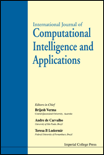
International Journal of Computational Intelligence and Applications
Scope & Guideline
Empowering Scholars in the Realm of Computational Intelligence
Introduction
Aims and Scopes
- Computational Intelligence Techniques:
The journal publishes research on various computational intelligence techniques such as neural networks, fuzzy logic, genetic algorithms, and swarm intelligence, providing a platform for innovative methodologies that enhance decision-making and problem-solving capabilities. - Applications of AI and Machine Learning:
There is a strong emphasis on the application of artificial intelligence (AI) and machine learning across diverse fields, including healthcare, finance, transportation, and environmental monitoring, showcasing how computational intelligence can address real-world challenges. - Optimization Algorithms:
Research focusing on optimization algorithms, particularly metaheuristic and hybrid approaches, is a significant aspect of the journal, highlighting advancements in solving complex optimization problems. - Interdisciplinary Approaches:
The journal encourages interdisciplinary research that combines computational intelligence with other fields such as data science, bioinformatics, and robotics, fostering innovative solutions and methodologies. - Emerging Technologies:
There is a consistent focus on emerging technologies such as blockchain, IoT, and autonomous systems, exploring their integration with computational intelligence to enhance system performance and security.
Trending and Emerging
- Deep Learning Innovations:
Research on deep learning techniques, including architectures like CNNs and GANs, is becoming increasingly prominent, reflecting the growing interest in applying these methods to various domains such as healthcare, image processing, and natural language processing. - Blockchain and AI Integration:
There is a notable trend towards exploring the integration of blockchain technology with AI, focusing on applications that enhance data security, privacy, and trust in automated systems. - Smart Systems and IoT:
The exploration of smart systems and the Internet of Things (IoT) is emerging as a significant area of interest, particularly in developing intelligent solutions for real-time data analysis and decision-making in connected environments. - Hybrid Optimization Techniques:
The use of hybrid optimization techniques that combine different algorithms to tackle complex problems is gaining popularity, reflecting a trend towards more sophisticated and effective computational strategies. - Healthcare Applications of AI:
There is increasing attention on applying AI and computational intelligence in healthcare, particularly in diagnostics, treatment planning, and predictive modeling, showcasing the potential of these technologies to improve patient outcomes.
Declining or Waning
- Traditional Statistical Methods:
The reliance on traditional statistical methods is decreasing as researchers shift towards more advanced machine learning and AI techniques, which provide greater flexibility and accuracy in data analysis. - Basic Neural Network Models:
There is a noticeable decline in publications focusing on basic neural network architectures, with a growing preference for complex and hybrid models that leverage recent advancements in deep learning. - Limited Scope of Applications:
Research papers that focus on narrower applications or less innovative uses of computational intelligence are becoming less frequent, as the journal emphasizes broader and more impactful applications. - Single-Algorithm Studies:
Papers dedicated solely to the analysis of a single algorithm are on the decline, as there is increasing interest in comparative studies and hybrid approaches that combine multiple methodologies for improved results.
Similar Journals
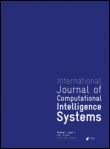
International Journal of Computational Intelligence Systems
Advancing Knowledge in Computational IntelligenceInternational Journal of Computational Intelligence Systems, published by SPRINGERNATURE, is a leading open-access journal that has been at the forefront of research in the field of computational intelligence since 2008. With an ISSN of 1875-6891 and an E-ISSN of 1875-6883, this journal occupies a prominent place in the academic landscape, achieving impressive rankings in its categories: Q2 in both Computational Mathematics and Computer Science (miscellaneous), reflecting its significance and relevance to researchers, professionals, and students. Based in Switzerland, the journal is committed to disseminating high-quality research and fostering innovation in computational methodologies, algorithms, and applications. Its strong impact factor and Scopus rankings—31/189 in Computational Mathematics and 53/232 in General Computer Science—underscore its critical role in advancing knowledge in these interdisciplinary fields. As an open-access journal, it provides unparalleled accessibility to cutting-edge research, supporting the global community in staying at the forefront of computational intelligence advancements.

ANNALS OF MATHEMATICS AND ARTIFICIAL INTELLIGENCE
Charting New Territories in Mathematical and AI ResearchThe ANNALS OF MATHEMATICS AND ARTIFICIAL INTELLIGENCE, published by Springer, is a prominent journal dedicated to exploring the intersection between mathematics and artificial intelligence. With an ISSN of 1012-2443 and an E-ISSN of 1573-7470, this esteemed publication has been at the forefront of groundbreaking research since its inception in 1990, converging its focus to address emerging trends through 2024. Currently categorized in the Q3 quartile for both Applied Mathematics and Artificial Intelligence as of 2023, it holds respectable ranks within Scopus, positioning itself as a vital resource for scholars with a rank of #228 in Applied Mathematics and #217 in the realm of Artificial Intelligence. Notable for its commitment to advancing theoretical and applied methodologies, this journal serves as an indispensable platform for researchers, professionals, and students keen to deepen their understanding and innovate within these domains. Although it does not operate under an open-access model, the journal emphasizes rigorous peer-reviewed scholarship, ensuring that each published article contributes significantly to the global dialogue on number theory, machine learning, and their multifaceted applications.

NEURAL COMPUTING & APPLICATIONS
Illuminating the Future of AI and Software DevelopmentNEURAL COMPUTING & APPLICATIONS is a premier journal dedicated to the burgeoning fields of Artificial Intelligence and Software Engineering, published by Springer London Ltd. Established in 1993, the journal serves as a pivotal platform for disseminating cutting-edge research and innovative applications in neural computing, covering a broad range of topics from algorithm development to real-world applications. With its impressive categorization in the 2023 Journal Quartiles—ranging Q2 in Artificial Intelligence and Q1 in Software—it stands out in its discipline, ranking 42nd out of 407 in Computer Science Software and 50th out of 350 in Computer Science Artificial Intelligence, reflecting its significant impact in the academic community. Although not an open access journal, it provides vital access to significant findings and methodologies that drive advancements in technology. Researchers, professionals, and students looking to stay abreast of the most relevant and impactful developments in these fields will find NEURAL COMPUTING & APPLICATIONS an indispensable resource.
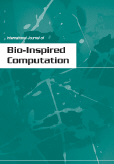
International Journal of Bio-Inspired Computation
Unlocking Nature's Secrets for Computational BreakthroughsInternational Journal of Bio-Inspired Computation, published by INDERSCIENCE ENTERPRISES LTD, is a leading platform dedicated to advancing research in the fields of bio-inspired computing and its applications. With a robust ISSN of 1758-0366 and E-ISSN of 1758-0374, this journal contributes significantly to the discourse in Computer Science, particularly emphasizing theoretical and practical frameworks that mirror natural processes. Situated in Switzerland, this peer-reviewed journal operates under a rigorous editorial process, ensuring high-quality publications that attract considerable attention, as evidenced by its placement in the Q2 category for 2023 in General Computer Science and Q3 in Theoretical Computer Science. With Scopus rankings reflecting its growing influence—ranked #62 out of 232 in General Computer Science and #36 out of 130 in Theoretical Computer Science—this journal invites researchers, professionals, and students to explore innovative methodologies and development in bio-inspired technologies. Although it currently does not adopt an open-access model, the journal remains committed to disseminating vital research that fuels advancements in computational intelligence, fostering collaboration and knowledge exchange in the ever-evolving landscape of computing.

Memetic Computing
Unleashing the Power of Memetic AlgorithmsMemetic Computing is a premier academic journal published by SPRINGER HEIDELBERG, dedicated to advancing research in the interdisciplinary domains of computer science and control optimization. With an impact factor that places it in the prestigious Q1 category for both Computer Science and Control and Optimization as of 2023, Memetic Computing stands at the forefront of innovation, offering researchers, professionals, and students a vital platform to explore and disseminate transformative findings in these rapidly evolving fields. With convergence periods specified from 2009 to 2024, the journal aims to illustrate the synergy between algorithmic and natural systems, reflecting current trends and future trajectories within the scope of memetic algorithms. Its robust Scopus rankings signal its significance as an influential resource within the global academic community. This journal is invaluable for those looking to enhance their understanding and engage with cutting-edge research that blends computational theory with practical applications.
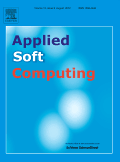
APPLIED SOFT COMPUTING
Connecting ideas and applications in soft computing.Applied Soft Computing is a premier international journal published by Elsevier, dedicated to advancing the field of soft computing in various applications. With an ISSN of 1568-4946 and E-ISSN of 1872-9681, it has established itself as a leading resource with a commendable impact factor and significant importance in its field. As of 2023, it ranks in the Q1 category of Software in Scopus, boasting a rank of 25 out of 407 journals in Computer Science, Software, representing the 93rd percentile among peers. The journal's primary objective is to publish high-quality, innovative research articles that explore soft computing methodologies and their applications across diverse domains, fostering interdisciplinary collaboration and advancing technological solutions. Based in the Netherlands, at Radarweg 29, 1043 NX Amsterdam, it serves as a vital platform for researchers, professionals, and students eager to contribute to and stay informed about the latest developments in soft computing.

IEEE Computational Intelligence Magazine
Bridging Theory and Application in Computational IntelligenceIEEE Computational Intelligence Magazine, published by the esteemed IEEE-INST ELECTRICAL ELECTRONICS ENGINEERS INC, is an essential resource for researchers and professionals in the fields of Artificial Intelligence and Theoretical Computer Science. With a robust Q1 ranking in both categories for 2023, this magazine stands out as a leader in disseminating cutting-edge research and innovative applications within computational intelligence. As an invaluable conduit for knowledge, it covers a diverse range of topics, including but not limited to machine learning, neural networks, and data mining. The magazine is particularly recognized for its interdisciplinary approach, bridging gaps between theory and application while contributing to advancements in technology and society. Although it does not offer open access, the insights provided are critical for staying at the forefront of this rapidly evolving discipline. Join a community of like-minded scholars and practitioners by exploring the latest findings and trends published from 2006 to 2024, operating from its headquarters at 445 Hoes Lane, Piscataway, NJ, United States.

Quantum Machine Intelligence
Pioneering research at the nexus of quantum mechanics and AI.Quantum Machine Intelligence is a leading academic journal published by Springer Nature, focusing on the rapidly evolving intersection of quantum computing and artificial intelligence. With an impressive impact factor reflected in its prestigious ranking in various categories—Q1 in Applied Mathematics, Computational Theory and Mathematics, and Theoretical Computer Science, alongside Q2 in Artificial Intelligence and Software—this journal serves as a vital platform for disseminating innovative research from 2019 to 2024. Researchers, professionals, and students are encouraged to engage with the journal’s content, which features high-quality peer-reviewed articles that explore theoretical foundations and practical applications of quantum technologies in machine intelligence. Although the journal operates under traditional subscription models, it is committed to advancing open academic discourse and accessibility in the digital age. With Scopus rankings that place it among the top echelons of its fields, the journal is an essential resource for anyone interested in the transformative potential of quantum algorithms and AI.
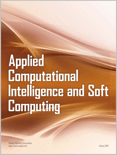
Applied Computational Intelligence and Soft Computing
Shaping the Future of AI and EngineeringApplied Computational Intelligence and Soft Computing, published by HINDAWI LTD, is a premier open access journal that has been disseminating critical research since 2009, focusing on the intersection of artificial intelligence and soft computing. With an impressive array of quartile rankings in 2023, including Q2 in Civil and Structural Engineering and Computational Mechanics, this journal has established itself as a significant contributor to the fields of computer science and engineering. Based in Egypt, it plays a vital role in advancing knowledge by providing researchers, professionals, and students with easy access to high-quality studies. The journal’s rigorous peer-review process ensures that only the most impactful research is highlighted, making it an essential resource for those looking to stay abreast of the latest innovations and methodological advancements in applied computational intelligence. Its Scopus rankings further affirm its influence and reputation within the academic community, exemplifying its commitment to facilitating collaboration and fostering intellectual discourse in various scientific domains.

Robotic Intelligence and Automation
Pioneering Insights in Robotics and Artificial Intelligence.Robotic Intelligence and Automation is a pioneering academic journal dedicated to the exploration and advancement of knowledge within the realms of robotics, artificial intelligence, and automation technologies. Published by EMERALD GROUP PUBLISHING LTD in the United Kingdom, this journal serves as a critical platform for researchers, professionals, and students who strive to understand and innovate in these rapidly evolving fields. With an impressive visibility across multiple disciplines, it has achieved a respectable Q2 ranking in Computer Science Applications, Control and Systems Engineering, Electrical and Electronic Engineering, and Industrial and Manufacturing Engineering, while also being recognized in Q3 for Artificial Intelligence and Human-Computer Interaction. The journal boasts a comprehensive Open Access model, allowing broad dissemination of research findings, which is vital for fostering collaboration and learning within the scientific community. Researchers can look forward to contributing to a publication that not only addresses current challenges but also seeks to shape the future of intelligent automation and robotics.